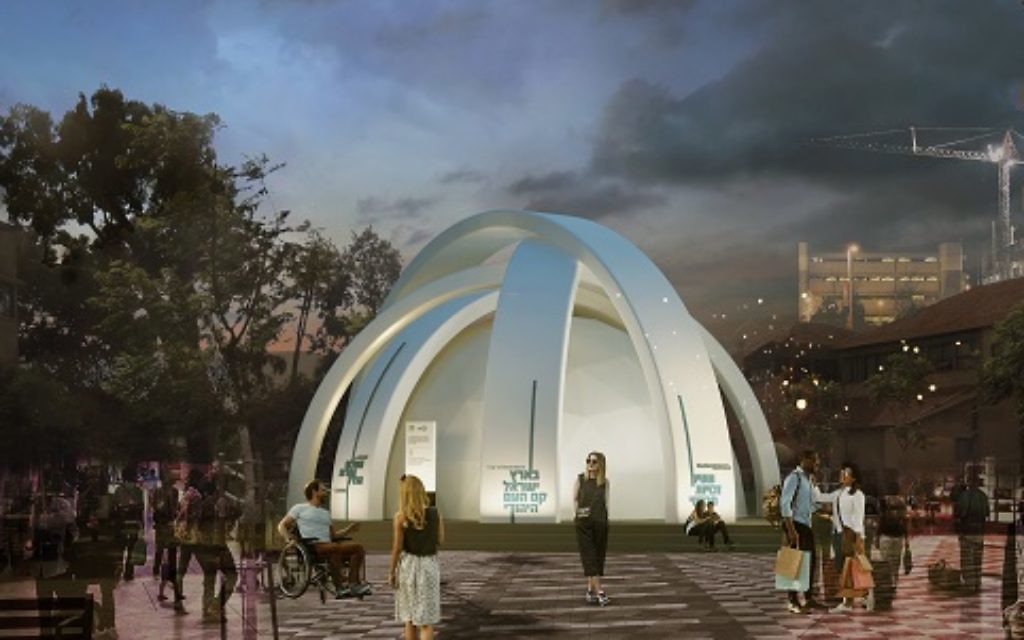Plesner: Israel Is a Democratic Miracle
Amid hostile neighbors, terrorism and religious rifts, Israel keeps political freedom, but tweaks are needed

Given the many challenges the Jewish state has faced since its creation, Israel’s 70th birthday is indeed an occasion for much celebration — for how far it has come in such a short period of time and for its fundamentally democratic and liberal character.
Born after the devastation of the Holocaust and during a war for its survival, with refugees flowing in from around the world, Israel had every excuse to dispense with the rule of law and human rights. In this maelstrom, Israel’s Declaration of Independence was nothing short of a miracle: an enlightened document that laid the foundation for a democracy in an otherwise autocratic region.
The values enshrined in this text have endured for seven decades despite the many subsequent wars and existential security threats, the harsh economic times, the influx of millions more Jewish refugees, the assassination of Prime Minister Yitzhak Rabin and the disengagement from Gaza, to name but a few major challenges.
Get The AJT Newsletter by email and never miss our top stories Free Sign Up
Despite the enmity with the surrounding Arab world, Israel lifted military rule over its own substantial Arab minority in the mid-1960s. No less telling, a peaceful handover of power first took place at the ballot box in 1977, and all segments of society are represented in the Knesset.
Israel is a vibrant, dynamic and resilient democracy, and Israeli society under this system has not only survived, but thrived.
The state does what functioning states are supposed to do: protect its citizens (especially from terrorism), uphold law and order, and provide basic essential services.
Economically, GDP per capita has skyrocketed into the top 20 globally. Israeli technology is a marvel of the post-industrial world; the country is referred to, with good reason, as the Start-Up Nation.
Israelis have, for the most part, taken notice of these great achievements. In a recent poll conducted by the organization I lead, the Israel Democracy Institute, 84 percent of Israelis said the country is a good place to live, and 68 percent were optimistic about the state’s future.
Yet not everything is rosy. Israeli democracy is still under enormous security pressures, which magnify the vulnerabilities of democratic institutions and values. Moreover, the past decade has witnessed a disturbing shift in trends.
Public rhetoric has grown more extreme, polarizing society across various political, religious and ethnic fault lines. Even senior politicians shamefully lambaste state institutions like the supreme court, civil service, army and police. Instead of governing according to consensus and the common good, the political system is widening existing divisions.
It is precisely at milestone moments like these, with seven decades of history and achievement behind us, that we must pause for reflection. The gains of the past cannot be taken for granted in the future.
It is imperative that Israel seriously consider reforming its political system and remedying the current situation, in which small sectoral actors hold the majority hostage. In addition, we must aspire to re-create a shared Israeli identity, especially given the country’s shifting internal demographics.
Related to this, Israel should work toward a constitution (the state famously does not have one) to codify the basic rules upon which the state was founded — and upon which its democratic system rests.
Finally, the relationship between religion and state sorely needs updating, with the status quo established 70 years ago between mainstream Zionist society and the ultra-Orthodox sector fraying. Every Jew the world over should be able to find his or her place, religiously and physically, in the Jewish state.
Above all, what is needed is a renewed connection to the principles and values laid out in the Declaration of Independence: equality, civil and human rights, freedom of expression.
For this reason, IDI has partnered with the Tel Aviv-Yaffo Municipality to build a unique Democracy Pavilion in the heart of the first Hebrew city. A 360-degree, multimedia experience encased in a large geodesic dome, the exhibit will provide the public with a history of Israeli democracy going back to the state’s founding.
Hundreds of thousands of Israelis of all ages are expected to visit during the exhibit’s run until the end of this year. All will be invited to sign the Declaration of Independence, reaffirming a commitment to the values it embodies.
These values were not a given 70 years ago, yet adherence to them was the secret to Israel’s remarkable achievements in the ensuing decades. We must safeguard them in the years and decades ahead so that future generations also will flourish in a strong and self-confident Jewish state.
Yohanan Plesner is the president of the Marcus Foundation-supported Israel Democracy Institute.




comments